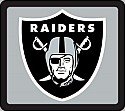
Reno, Nevada is named for him but very few people in American know who Jesse Reno was. Reno was a close friend of Thomas Jackson A.K.A. "Stonewall" and his family ties could be traced back to immigrants who came to the United States in 1700.Reno was born on June 20, 1823 in Wheeling, Virgnina (now West Virginia) to Rebecca and Thomas Reno. When Reno reached the age of 16 the family moved to Franklin, Pa. and within a few years Reno was accepted at West Point. His class at West Point was the famous class of 1846 which contained many men who would become key Civil War leaders. A.P. Hill, Thomas J. Jackson and George Pickett were the men that Reno stood next too in class and drill. Future Union generals George McClellan, John Gibbon also attended classes with Jesse. He was well liked and respected by his classmates, thanks in part to his easy going personality that stood out amongst the hard-nosed cadets that surrounded him.During the Mexican War Reno served faithfully within General Scotts army as an artillery officer. He served with distinction at the battles of Vera Criz, Cerro Gordo, and Chapultepec. The war brought even more prosperity to Reno because he recieved a brevet as captain for what was termed as for "gallant and meritorious conduct."After the war, Reno became a Professor of Mathematics at West Point and in 1853 he married Mary Blanes Cross and together they had five children between 1853-1862. After working in various military positions in Minnesota and Pennsylvania until 1857
Reno accompied future Confederate general Albert Sidney Johnston around the state of Utah as chief ordinace officer.At the start of the Civil War the north saw West Point graduates as a scarce commidity. Future Generals Grant and Sherman were promoted because of the military educations that they recieved at "the Point". Reno was no exception and on November 12, 1861 he recieved Brigadier General commission. Reno was placed in charge of the Union troops whose assignment was to take Roanoke Island in North Carolina. On February 2, 1862 the Confederate garrison surrendered and the Union had one of its first heros. Jesse recieved a promotion to Major General for his success.Placed in command of the Army of the Potomac's Ninth Corps, Reno would rise to further fame. Reno led his corps in the Second Battle of Bull Run on August 29 to 31, 1862 but that would be his last major battle as corps commander.
After his victory at Second Mannassas, Confederate General Robert E. Lee saw the opportunity to invade the Northern states. Lee divided his command during the invasion and this opened the door for McCellan the divided rebel forces. South Mountain is often overlooked by the Civil War novice, overshadowed by the atrocities of the Battle of Antietam (near Sharpsburg), which took place three days later and resulted in a loss of 23,000 men. The Battle of South Mountain broke out on September 14, 1862 in the Fox's Gap and Turner's Gap areas after rebel gunners opened fire on union troops.  Future presidents Rutherford B. Hayes and William McKinley participated in the battle and so did Jesse Reno. It is interesting to note that McKineley was assassinated in office on September 14, 1901, 39 years to the day of the battle. General Reno was killed almost as soon as he came up to the line occupied by his men at Fox's Gap. Reno's final words were "Tell my command that if not in body, I will be with them in spirit." and at age 39 he died.
Future presidents Rutherford B. Hayes and William McKinley participated in the battle and so did Jesse Reno. It is interesting to note that McKineley was assassinated in office on September 14, 1901, 39 years to the day of the battle. General Reno was killed almost as soon as he came up to the line occupied by his men at Fox's Gap. Reno's final words were "Tell my command that if not in body, I will be with them in spirit." and at age 39 he died.
 Future presidents Rutherford B. Hayes and William McKinley participated in the battle and so did Jesse Reno. It is interesting to note that McKineley was assassinated in office on September 14, 1901, 39 years to the day of the battle. General Reno was killed almost as soon as he came up to the line occupied by his men at Fox's Gap. Reno's final words were "Tell my command that if not in body, I will be with them in spirit." and at age 39 he died.
Future presidents Rutherford B. Hayes and William McKinley participated in the battle and so did Jesse Reno. It is interesting to note that McKineley was assassinated in office on September 14, 1901, 39 years to the day of the battle. General Reno was killed almost as soon as he came up to the line occupied by his men at Fox's Gap. Reno's final words were "Tell my command that if not in body, I will be with them in spirit." and at age 39 he died.Reno was buried at Oak Hill Cemetery in Washington D.C. Reno had two sons listed in Who's Who in America - Conrad a lawyer of Boston 1883 to 1912, author of the History of Judicial System of New England, and Jesse W. Reno, New York, engineer, did mining work in Colorado and electric expert in railway work; employed by the Edison Company. He invented the inclined elevator or moving stairway which is now known as the escalator.Reno was a great leader whose loss was felt by the Army of the Potomac and many subsquent campaigns in which his leadership could have made a difference. He is one of the many Civil War officers to die so young, so gallalently and too soon.
Some cool sources:





No comments:
Post a Comment